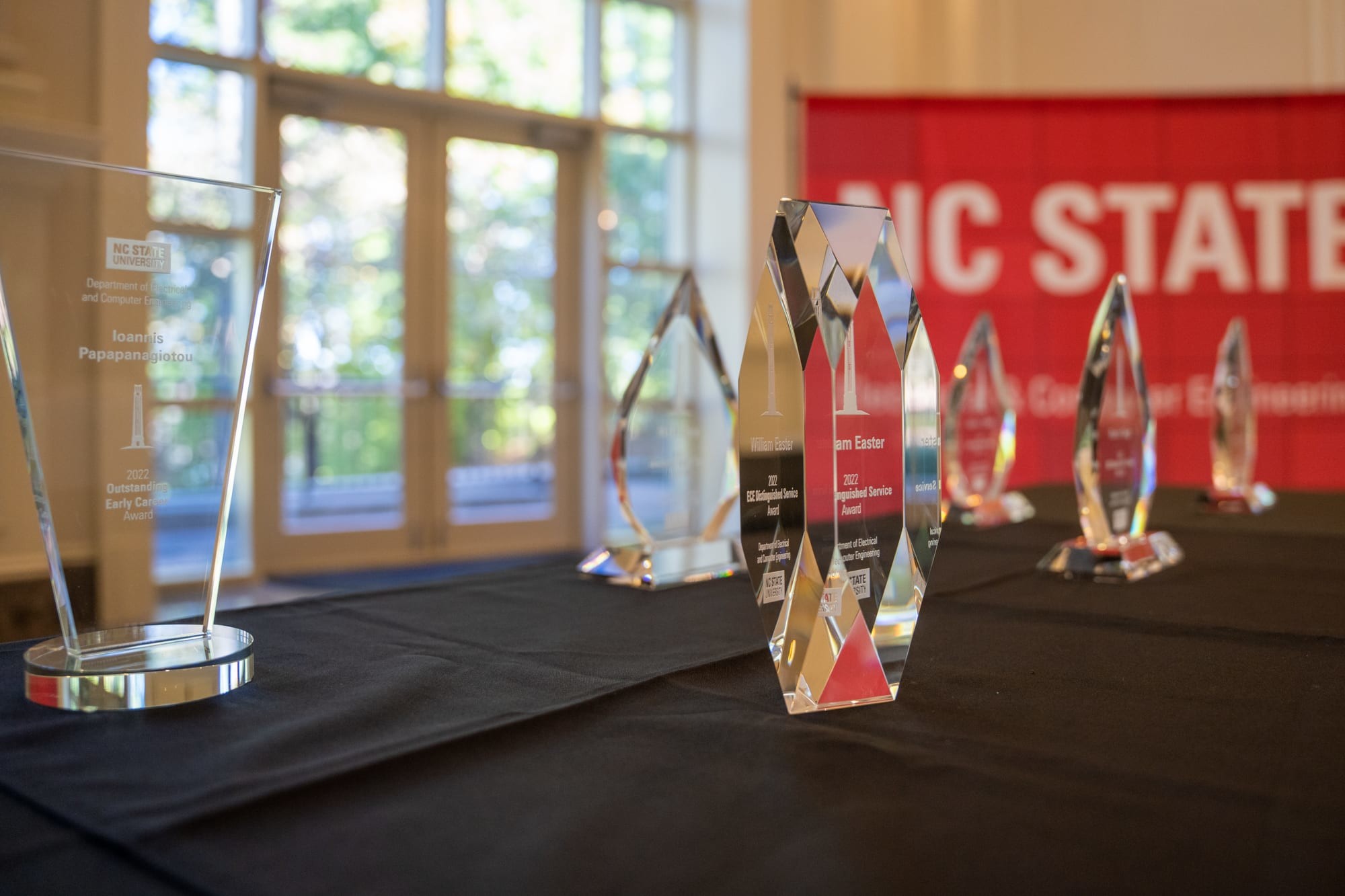
Announcing the 2022 ECE Alumni and Community Awards
At an induction ceremony on October 21, 2022, 5 members of the seventh class of inductees were honored and joined the ranks of the ECE Alumni Hall of Fame, out of over 17,000 alumni, and were joined by two new awards.
October 21, 2022 ![]() Charles Hall
Charles Hall
The Department of Electrical and Computer Engineering at NC State University is proud to announce the 2022 inductees to the ECE Alumni Hall of Fame. Additionally, the recipients of two new awards—the Outstanding Early Career Award, and the Distinguished Service Award were recognized.
At an induction ceremony on October 21, 2022, at the Dorothy and Roy Park Alumni Center on NC State’s Centennial Campus, 5 members of this seventh class of inductees were welcomed by members of the ECE Advisory Board and ushered into the ranks of the Alumni Hall of Fame.
This class of recipients included national business leaders, professors, and innovators from all walks of engineering life.
We have inducted 86 exemplary alumni into our Alumni Hall of Fame since its inception in 2015, celebrating the accomplishments of our outstanding graduates who use their education to excel in a profession, career, or service.
The Outstanding Early Career Award is presented to one alum each year who has attained significant achievement early in their career and who shows promise of further contributions to the field.
Finally, the Distinguished Service Award recognizes and honors the lasting service and impact that NC State ECE community members have had on the department, its students, and its mission. In recognition of its inaugural recipient, it was also announced that this award will be named the William Easter Distinguished Service Award.
Our alumni and community are at the core of the Department, representing the agents and ambassadors that have made groundbreaking contributions in the study of electrical and computer engineering and beyond.
We offer a special thank you to the ECE Alumni Hall of Fame Committee. Their diligent efforts in the review and selection process are indeed appreciated. The Department is the fortunate recipient of their commitment to alumni engagement. Our sincerest gratitude is bestowed to the following members for their time, dedication and invaluable service: Clay Gloster, Jim O’Dell, Mary Whitton, Steve Marbut, Spencer Johnson, and Sonali Luniya.
To learn more about how you can nominate outstanding alumni for induction, please visit the Alumni and Community Awards. Nominations for next year’s induction will be accepted through July 15, 2023.
Hall of Fame Inductees

Bob Kepley
Bob Kepley, senior vice president of engineering at Hughes Network Systems, LLC (HUGHES), leads the hardware engineering division of 100+ engineers responsible for Analog, RF, Digital, Mechanical, DSP and CAD design for satellite communication products and systems for consumer, enterprise, and government markets.
Joining other North Carolina State University (NC State) alumni, Mr. Kepley began his career at Hughes in 1981 as a member of the technical staff. With interests in digital signal processing and information theory, Mr. Kepley initially contributed to the advancement of video and audio coding and compression technology. Over his 41-year career at Hughes, Mr. Kepley has made numerous contributions in the areas of wireless and satellite communication products, systems, and services including satellite-based telephone and video conferencing systems, airplane telephone system, satellite television set top boxes, government systems and products, and broadband satellite internet systems designed to help close the digital divide.
Mr. Kepley earned both a Bachelor of Science degree (1979) and a Master of Science degree (1981) from NC State. In 2011, he delivered the NC State Electrical and Computer Engineering (ECE) Department commencement address. An active NC State alum, Mr. Kepley also served on the ECE Strategic Advisory Board and endowed the W.R. Kepley Scholarship for engineering students in honor of his late father who earned a Bachelor of Science degree in Mechanical Engineering from the university in 1959. Mr. Kepley holds numerous patents in electronics and communications systems and has authored published technical papers.
One of the most important attributes of an engineer in industry is the thirst for knowledge as applied to the advancement of technology. The quality of your education as well as continuing education are key to success.
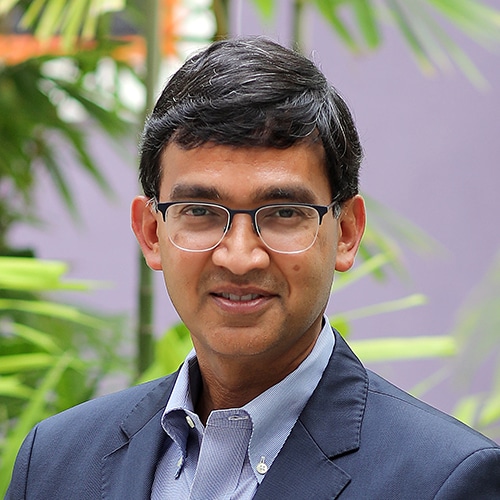
Varun Nagaraj
Varun Nagaraj is the Dean of S.P. Jain Institute of Management and Research (SPJIMR), a Top 10 business school in Mumbai, India. His research and practice interests include digital innovation, product management and entrepreneurship. During a 30-year career in product innovation in Boston and Silicon Valley prior to assuming his role at SPJIMR, he held various product leadership roles, including that of CEO at venture-funded start-ups and public companies. He was also a partner at PRTM Management Consulting. He holds a bachelor’s degree in electrical engineering from the Indian Institute ofTechnology Bombay, an MS in computer engineering from North Carolina State University, an MBA from Boston University, and a Ph.D. from Case Western Reserve University’s Weatherhead School of Management. He has published articles on design thinking and product management in top journals such as the Journal of Product Innovation Management, and Research-Technology Management, and has contributed to Edward Elgar's Handbook of Digital Entrepreneurship. He also serves as practitioner-at-large for the Academy of Management’s Communications, Digital Technologies, and Organizations division.
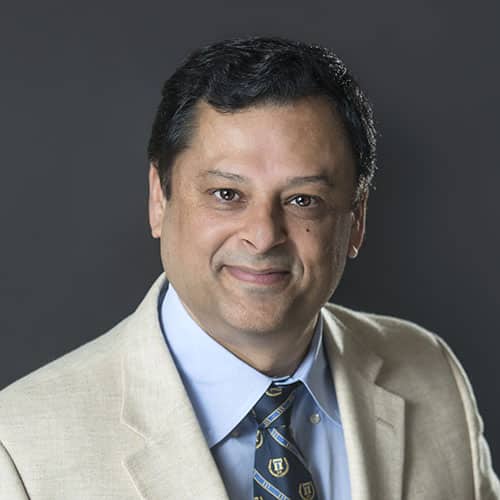
Ranbir Singh
Dr. Ranbir Singh has developed critical understanding and published on a wide range of SiC power devices including PiN, MPS rectifiers, Trench and planar MOSFETs, IGBTs, Thyristors and field controlled thyristors. He has co-authored over 200 publications in various refereed journals and conference proceedings and is an inventor on 35 issued US patents. He is the first author of the book titled “Cryogenic operation of silicon power devices”. He has served on the Technical committee of the IEEE ISPSD from 2002-04 & 2014-16, as well as IEEE IEDM from 2002-03. In 2003, and again in 2004 he received the IEE Japan Award for the development of record-setting performance from SiC devices. In 2011, and again in 2019 he won the R&D100 award towards his efforts in commercializing innovative SiC power devices. In 2012, EE Times named him as among "Forty Innovators building the foundations of next generation electronics industry.”
He received his Ph.D. and MS Degrees from North Carolina State University in 1992 and 1997 respectively; and A B.Tech degree from Indian Institute of Technology, Delhi in 1990. In 2004 he founded GeneSiC Semiconductor Inc., which successfully commercialized many families of SiC power devices with industry’s leading performance, ruggedness and reliability. The company was successfully acquired/merged with Navitas Semiconductor (NASDAQ:NVTS) in Aug 2022. During 2003-4, he worked on reliability of SiC power devices at NIST, Gaithersburg, MD; and from 1995-2003 he worked at Cree Inc. in Durham, NC.
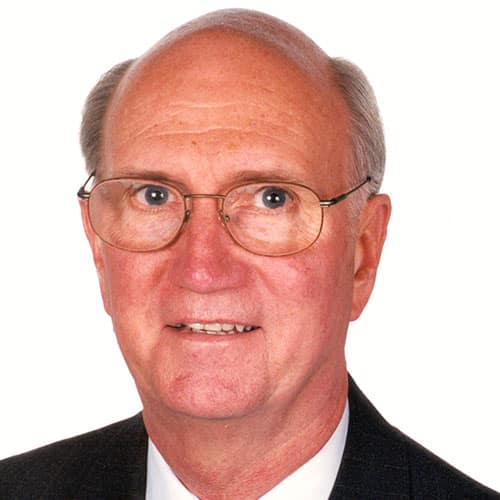
Aubrey T. Smith
Aubrey T (Tom) Smith began his career working on NASA satellites which formed the practical foundation for his career and subsequent transfer to the acquisition of major airborne weapon systems for the Navy. He was a pioneer in the evolution of analog systems to computer centric digital/software systems and became very experienced in systems acquisition, engineering, integration and standardization. He was the Program Manager for the Navy Standard Airborne Computer and the Chief Avionics Engineer for Naval Aviation. His portfolio covers several dozen weapon system variants. He is well known in the international community as he chaired two NATO committees on aviation systems where he led efforts across the alliance’s nations and he has provided numerous presentations internationally.
Tom is a Fellow of the American Institute of Aeronautics and Astronautics (AIAA). He has served a total of 14 years on the institute’s Board of Directors in two technical director positions and as Vice President-Finance, plus four years on the AIAA Foundation Board of Trustees.
He finished his government career as the Director of the DoD Tri-service Open Systems Joint Task Force in the Office of the Under Secretary of Defense for Acquisition. There he led efforts to promulgate open system concepts, principles and advantages across the services. He then established and has been President and CEO of an engineering consulting firm holding multiple contracts with the DoD and the Navy.
Being right does not mean that one has the right approach. Write it in specific English and date it, otherwise it may be for nothing. Cherish your integrity. if you lose it, it will be very hard to get back. It really does not take much to rise above the median.
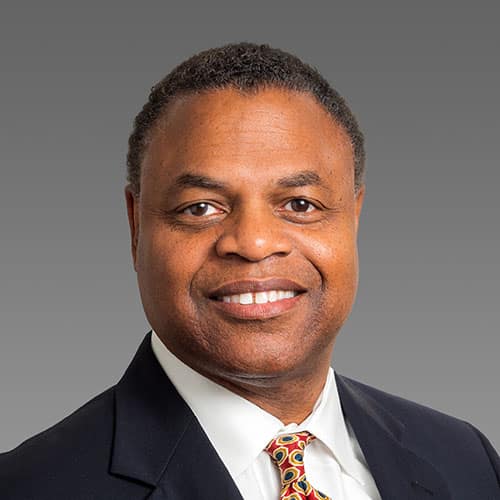
Carl Wilkins
Carl Wilkins held various technical, management and leadership positions while working at Carolina Power & Light Company over 23 years. For 10 years, he led the Client Services group during his tenure at Advanced Energy Corporation. Since 2008, Carl led the Distribution business unit at Quanta Technology and is responsible for developing business and providing management, business, and technical advisory services to electric utility distribution planning organizations domestically and abroad. His team performs grid integration studies for distributed generation projects and distribution planning studies, including load forecasting. Carl's team performs advanced engineering and research studies to investigate the impacts of high penetration levels of renewables on the utility grid. His team also supports a myriad of projects from hosting capacity, reliability improvement, grid modernization, distribution operations, DER system impacts, data analytics and electric transportation. Carl also oversees distribution engineering resources for nearly 30 projects in support of LUMA Energy in Puerto Rico. In 2018 Carl was appointed by the Governor of North Carolina to the Board of Directors for Advanced Energy Corp. and in 2017 served on the North Carolina Energy Policy Council. He is a registered professional engineer in North Carolina and Missouri. Carl holds a Bachelor of Science degree in Electrical Engineering from North Carolina State University and completed post-graduate professional development work at Harvard Business School.
Becoming an engineer is no easy feat and it’s not intended for everyone, but for those who love the challenge and the reward of technology adoption, it’s a worthy pursuit. Dream big and be prepared to work hard to realize your full potential. Becoming an electrical engineer exceeded my expectations.
Outstanding Early Career Award
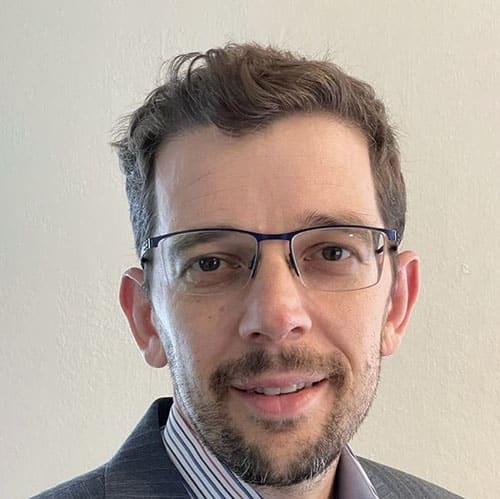
Ioannis Papapanagiotou
Ioannis Papapanagiotou is a Director of Engineering of the Blockchain Platform at Gemini. He received the MSc & Ph.D. degrees in Computer Engineering and Operations Research from NC State University. As a graduate student, Ioannis received the IBM Ph.D. Fellowship and Academy of Athens Ph.D. Fellowship for his research, and best paper awards in the IEEE Globecom 2007 and the IEEE CAMAD 2010 conferences. He helped rebuild the ECE Graduate Student Association and assisted in establishing our online collaboration program with the University of North Carolina at Asheville.
Ioannis has obtained a wide range of experiences in the software industry and academia. He has built organizations and systems at a large scale (10 Billions operations per day, Exabytes of data) serving hundreds of millions of users as a senior manager at Snowflake and at Netflix. He has served in the faculty ranks of Purdue University (tenure-track) and was an engineer at IBM Software Group and IBM TJ Watson Research Center. At Purdue University, he has been awarded the NetApp faculty fellowship and established an Nvidia CUDA Research Center. Ioannis has authored several patents and research publications. Ioannis loves to contribute back to the ECE department. As a proud NC State alumni, he established, along with his wife Sofia, the “Papapanagiotou Ph.D. fellowship”, he is teaching graduate courses and advises ECE students.
Distinguished Service Award
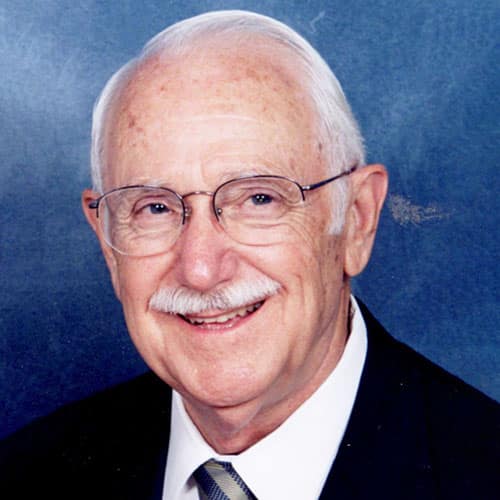
William Easter
After a stellar high school performance, William Easter began his college education at The George Washington University in 1950. With the Korean War raging, he enlisted in the United States Air Force in July, 1951. After basic training he was assigned to radio operator school. As a part of this curriculum he received instruction in basic electronics, which led to a decision to study electrical engineering after his active service. He graduated with a B. S. degree in Electrical Engineering with high honors from North Carolina State College (University) in 1959. At this point he was awarded an NDEA fellowship for Ph.D. study in science of materials at Carnegie Institute of Technology (Carnegie Mellon University).
At Carnegie Tech, he completed the coursework and qualifying exams to begin research in what we now know as solid-state materials and devices. Unfortunately (or fortunately depending on one’s perspective) his efforts did not culminate with the Ph.D., and he left CIT with a Master of Science in Electrical Engineering.
In 1963, through the encouragement of Robert Lade, a colleague at CIT who had been recruited to begin a solid-state research program at N.C. State , he joined the Electrical Engineering faculty as an instructor. During the first year, he assisted Dr. Lade in designing the first fabrication laboratory and teaching the first graduate course in the solid-state curriculum. Afterward, he was assigned to teaching the senior courses in electronics and communications, which at that point still concentrated on vacuum-tube technology. In the next year, he introduced transistor technology and began to emphasize design in the laboratory experiments rather than use the analytic approach common at the time.
After having served for several years on the Advisory Committee for the Engineering Operations Program, a curriculum combining basic engineering principles with business fundamentals, Easter was named director of the program in July, 1970. For the next ten years, he strengthened the E.O. curriculum and promoted the value of its graduates to industry recruiters, while continuing to teach in the in electrical courses.
In 1980, with a new department head in Electrical Engineering, he moved back into the department as associate head. In this position he was responsible for the undergraduate program, managing the teaching schedule for all E.E. courses, assigning the graduate teaching assistants their duties, moving the department to a centralized advising system and representing the department on the Engineering College and University Scholarship and Course and Curriculum Committees. He was also elected to represent the Engineering College on the University Faculty Senate, serving one year as secretary. During this phase of his career, he also served for 12 years on the N.C. State Board of Examiners of Electrical Contractors, having been appointed by Governors James Martin and James Hunt. For eight of these years he was elected by the Board as chairman.
During his years as associate department head, he continued to push for a greater design emphases in the undergraduate curriculum, to culminate in a required senior design project. After a proposal was made to add computer engineering as a second curriculum, he supported the effort against resistance from the more conservative faculty members and argued for its approval in the College and University Course and Curriculum Committees.
In 1991, Easter resigned from his administrative position and returned to full-time teaching in the electronics circuits course he had started with. In order to give his students as near an industry experience as possible in the academic environment, he had the students participate in a semester-long design project for the laboratory portion of the course. A fitting end to his thirty-one years on the Electrical and Computer Engineering Faculty.
